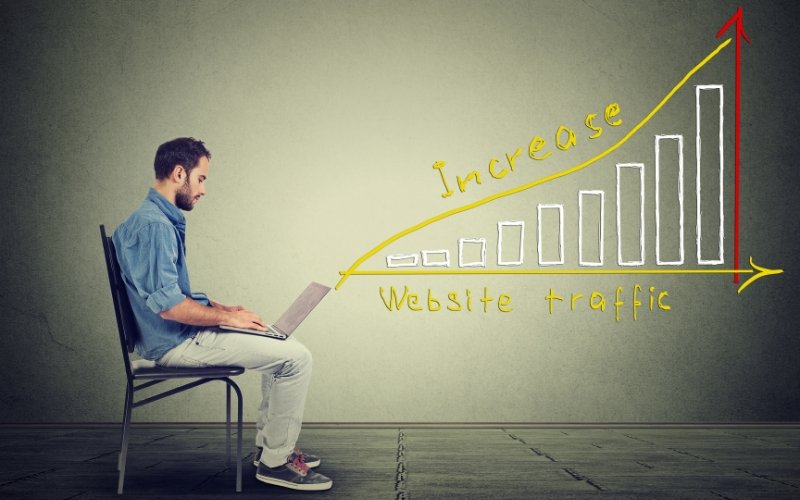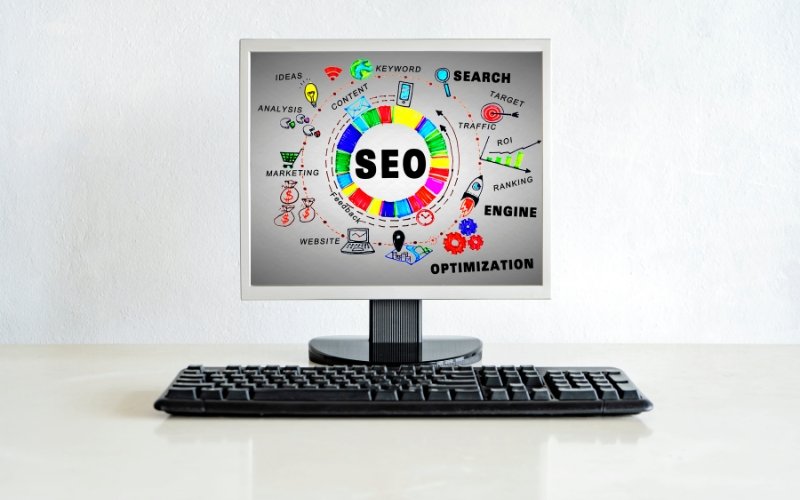In today’s digital landscape, social media is a powerful tool that extends beyond just connecting with your audience and sharing updates. It can significantly impact your SEO (Search Engine Optimization) efforts, helping businesses improve their online visibility, drive traffic, and boost overall search engine rankings. While social media activity itself does not directly affect your SEO rankings, the indirect benefits it offers are undeniable. In this article, we’ll explore how startups and small businesses can leverage social media to support their SEO strategy and enjoy long-term success in the online space.
Increased Website Traffic through Social Sharing

One of the most direct ways to leverage social media for SEO is by driving more traffic to your website. Sharing blog posts, articles, or product updates on platforms like Facebook, Instagram, LinkedIn, and Twitter can encourage your followers to visit your site. Increased traffic to your website signals to search engines like Google that your content is valuable and relevant to users. The more people engage with your content on social media, the more traffic your website will attract, which in turn can improve your rankings in search results.
For startups and small businesses, regularly sharing content across social media channels is a key way to leverage social media effectively. This approach can serve as an affordable way to gain visibility and drive traffic, especially if your followers are active and engaged. Encouraging social sharing by adding share buttons to your website, posting engaging updates, and creating content that resonates with your audience allows you to fully leverage social media for amplifying your reach and improving SEO indirectly. To maximize the benefits, ensure your strategy focuses on consistent posting and targeted audience engagement, making it easier to leverage social media as a tool for long-term success.
Boosting Content Visibility and Engagement
Social media is an ideal platform to leverage social media to promote and distribute content, which is a key component of SEO. When you create valuable, high-quality content, it’s important to share it across your social media channels to leverage social media for increased visibility. The more eyes on your content, the higher the chances of earning backlinks, which are crucial for improving search rankings.
Backlinks from authoritative websites serve as a strong signal to search engines that your content is credible and valuable. By sharing your content on social media, you increase the likelihood of other websites linking back to your articles or blog posts. This process of generating backlinks helps boost your domain authority, one of the main factors search engines consider when ranking websites. Using strategies to leverage social media effectively can amplify this process.
For example, if a popular industry influencer or blogger discovers your content on social media and shares it on their platform, this could lead to significant traffic and backlinks, ultimately improving your site’s SEO. Startups and small businesses can leverage social media by identifying the right platforms for their audience, posting consistently, and using relevant hashtags to make content more discoverable. By doing so, they can fully leverage social media to expand their reach and improve overall engagement.
Improved Brand Awareness and Credibility
SEO is closely tied to how authoritative and credible your brand appears online. To achieve this, it’s essential to leverage social media effectively. Social media helps you establish your brand identity and build trust with your audience, both of which contribute to SEO performance. The more recognizable and trusted your brand is, the more likely users will search for it directly or engage with your content, which can improve your rankings.
When potential customers see your brand regularly on social media, they are more likely to recognize and trust your business. This is why businesses should leverage social media to increase brand awareness. This increased awareness can lead to more branded searches—search queries that include your brand name. Branded searches indicate to search engines that your business is relevant and trustworthy, contributing to improved search visibility.
Moreover, by maintaining a consistent social media presence, businesses can leverage social media platforms to showcase social proof—such as positive reviews, testimonials, and user-generated content—to enhance their credibility. Engaging with your audience through comments, likes, and shares builds a community around your brand and establishes you as a credible authority in your niche. By understanding how to leverage social media strategically, you can amplify your reach and strengthen your online presence.
Ultimately, businesses that consistently leverage social media to connect with their audience will stand out as reliable and engaging, boosting not just credibility but also SEO rankings. To achieve long-term success, remember to leverage social media as an integral part of your digital strategy..
Optimizing Social Media Profiles for SEO

Optimizing your social media profiles is another way to leverage social media for SEO benefits. Many businesses overlook the importance of their social media profiles as part of their overall SEO strategy. However, search engines often index social media profiles, meaning these profiles can appear in search results, especially for branded queries.
Start by ensuring that all of your social media profiles are complete and consistent. Use your business name as the username or handle on each platform, and include relevant keywords in your bio, description, and posts where appropriate. For example, if you run a small bakery, including keywords like “best bakery in [location]” or “artisan baked goods” in your social media descriptions can improve your chances of appearing in local search results.
Additionally, add links to your website in your social media profiles. This not only directs social media followers to your site but also contributes to SEO by creating valuable backlinks. Consistency in branding, keywords, and links across all platforms reinforces your business’s identity and improves its chances of ranking well in search engines.
Social Signals and User Engagement
While social media activity does not directly impact SEO rankings, it plays a significant role in influencing user behavior and engagement. When users find your content on social media and engage with it, they are more likely to spend time on your website, explore different pages, and interact with your products or services.
Metrics like time spent on a page, bounce rate, and pages visited all contribute to your site’s overall SEO health. A user who lands on your website from a social media post and spends several minutes exploring your content sends a positive signal to search engines, indicating that your site is offering valuable, relevant information. Conversely, a high bounce rate—when users leave your site shortly after arriving—can negatively affect your rankings.
By promoting engaging, high-quality content on social media, businesses can drive more qualified traffic to their website, encouraging users to spend more time interacting with their content. The longer users stay on your site and the more they engage, the better your site’s SEO performance will be.
Building Relationships and Influencer Collaborations

Social media is an excellent platform for building relationships within your industry, particularly with influencers and thought leaders who can help amplify your content. Collaborating with influencers or partnering with industry leaders can expand your brand’s reach and earn you high-quality backlinks, which are valuable for SEO.
When influencers share your content with their followers, it opens the door to a larger audience and increases the likelihood of gaining new followers, traffic, and backlinks. These collaborations help boost your brand’s credibility and improve your chances of ranking higher in search engine results.
Small businesses can benefit from forming partnerships with micro-influencers or niche experts who have loyal, engaged followings. Building these relationships can lead to mutually beneficial collaborations that enhance both your social media presence and your SEO performance.
Conclusion: The Symbiotic Relationship Between Social Media and SEO
While social media does not directly influence SEO rankings, its indirect impact can significantly enhance your SEO strategy. By driving traffic, building brand awareness, and earning valuable backlinks, social media plays a crucial role in improving your website’s visibility and search engine rankings. Startups and small businesses can leverage social media by consistently sharing high-quality content, optimizing profiles for search engines, and engaging with their audience to maximize SEO benefits.

